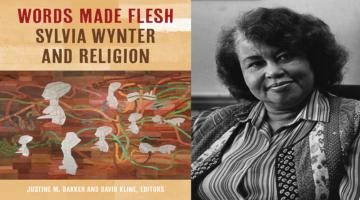Nyong’o’s book seeks to “articulate the power of the critical and creative fabulation” of black social life.
“Blackness refuses to conform to the dominant imprint of gender and sexuality.”
In this series, we ask acclaimed authors to answer five questions about their book. This week’s featured author is Tavia Nyong’o. Nyong’o is Professor of African American Studies, American Studies, and Theater Studies at Yale University. His book is Afro-Fabulations: The Queer Drama of Black Life.
Roberto Sirvent: How can your book help BAR readers understand the current political and social climate?
Tavia Nyong’o:Afro-Fabulations looks back to Zora Neale Hurston, a founding mother of both black theater and anthropology, and revives her distinctive theory of black angular sociality. For Hurston, aesthetics and ethics were inseparable. In the book, I draw upon feminism and LGBT studies to place these matters back on the black agenda. I hope to suggest throughout the book that blackness refuses to conform to the dominant imprint of gender and sexuality, that our sociality is inventive and creative, and that we are anti-normative by definition. Where many people seem to be captivated by the spectacle of black death right now, I try not to be. I want to remain enchanted with black life.
What do you hope activists and community organizers will take away from reading your book?
I’m not sure! And in a way, I hope not to know in advance what any reader will take away from my book. Take what you need and leave the rest for someone else. For some it might be an introduction to black queer and transgender art and aesthetics. For others it might be an eccentric guide to contemporary theory. I hope everyone will see art and performance as fields of engagement to occupy and transform. I hope they will find stories of black men and women who brought their whole selves into spaces of artistic production. I hope they will take away a sense of the sometimes fractious field of black studies as “the same family looking at different things.” I end the book with a call for poetics of black queer and transgender lives. We came out of the closets and into the streets. We danced the down low. We tipped on the transgender tightrope. This is fantastic and life-affirming. And I want readers to know more about the whole beautiful, terrifying history of black people not conforming to gender and sexuality as a way of not conforming to a white supremacist society. I want everyone to know that.
We know readers will learn a lot from your book, but what do you hope readers will un-learn? In other words, is there a particular ideology you’re hoping to dismantle?
So many ideologies! I hope the book continues the collective unlearning of sexism and homophobia. I hope we unlearn our state addiction, our rigid pessimism and our uncreative nihilism. (I’m okay with flexible pessimism and creative nihilism, by the way!) I hope we will unlearn our anxious attachments to respectability and civility as granting us conditional access (Hortense Spillers calls it “vestibular” access) to rights and dignity. And I hope in a way to render myself unnecessary, if the thing you learn from reading is to defer to the author. The best possible reading of my book, I sometimes think, would be to fully absorb and then somehow immediately forget it.
Who are the intellectual heroes that inspire your work?
For me at least, all roads lead to Stuart Hall. I only met him once, but his example of the committed left intellectual, teacher, and collaborator has always stood out to me. He also fought the good fight without getting into petty rivalries and controversies with his comrades. (Or so I choose to believe). He is my exemplar.
In what way does your book help us imagine new worlds?
My book is all about the imagining of new worlds! But the art and performance I describe are actually-existing, if ephemeral, worlds, for the artist and the audience that gathers around them. And the book seeks to articulate the power of the virtual, seen not merely as commercially-produced, technology-dependent “virtual reality,” but, more nearly, the reality of the virtual in the critical and creative fabulation of black social life. The other thing to say is that there are cautionary notes to be sounded around “new worlds”: not all products of the imagination will be optimistic or hopeful. There is a powerful strand of dark prognostication in black aesthetics that I examine, in particular through the fictions of Samuel R. Delany. That is where my own scholarly work is headed next.
Roberto Sirvent is Professor of Political and Social Ethics at Hope International University in Fullerton, CA. He also serves as the Outreach and Mentoring Coordinator for thePolitical Theology Network. He’s currently writing a book with fellow BAR contributor Danny Haiphong called American Exceptionalism and American Innocence: A People’s History of Fake News—From the Revolutionary War to the War on Terror.
COMMENTS?
Please join the conversation on Black Agenda Report's Facebook page at http://facebook.com/blackagendareport
Or, you can comment by emailing us at comments@blackagendareport.com



















